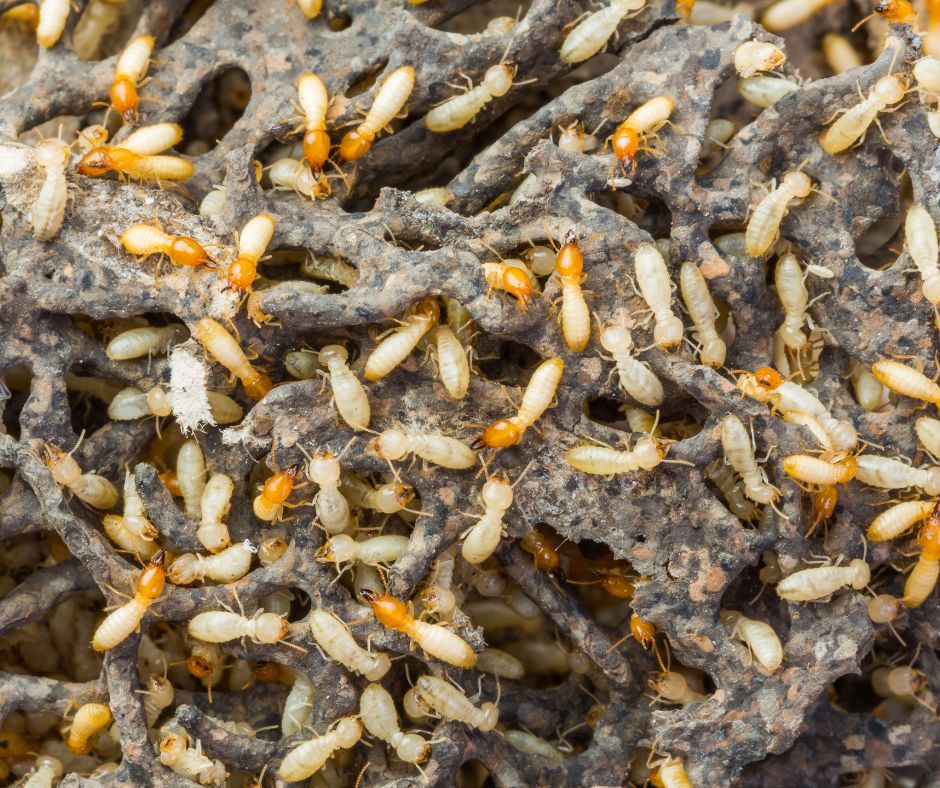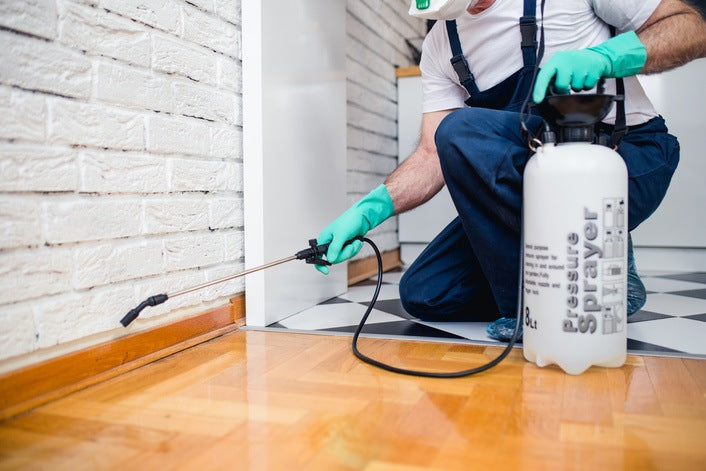Ant Exterminator Near Me: How to Get Rid of Ants Quickly and Successfully
Learn More About the current Breakthroughs in Pest Control and Just How to Carry Out Efficient Therapy Solutions
In recent years, the area of parasite control has experienced substantial advancements, driven by the need for lasting and reliable therapy remedies. Cutting-edge methods such as Integrated Parasite Management (IPM) combine green techniques with advanced innovation, enhancing both efficiency and environmental obligation.
Eco-Friendly Pest Control Options
Recently, the demand for environmentally friendly bug control options has actually surged as companies and home owners alike look for lasting choices to typical chemical treatments. This shift is driven by growing environmental recognition and a need to reduce the health and wellness dangers related to artificial pesticides.

Environmentally friendly insect control approaches incorporate a variety of techniques that focus on using natural materials and techniques. Integrated Parasite Management (IPM) is one such method, integrating biological, social, and mechanical strategies to manage bug populaces while lowering dependence on chemicals (Wildlife removal services). This holistic approach emphasizes prevention through habitat adjustment and the introduction of natural killers, therefore cultivating a balanced ecosystem
Another prominent choice is making use of botanical chemicals acquired from plants, which have a tendency to be less hazardous to non-target microorganisms. Products like neem oil and diatomaceous planet have actually obtained grip for their performance in managing bugs while presenting marginal threats to human health and wellness and the environment.
Furthermore, exemption techniques, such as sealing entrance factors and keeping sanitation, play an important duty in eco-friendly parasite management. By adopting these lasting practices, companies and people can effectively take care of pests while promoting a much healthier planet for future generations.
Smart Modern Technology in Pest Monitoring
Development is improving the landscape of parasite administration, with wise modern technology becoming an essential pressure in enhancing performance and performance - Wildlife removal services. The assimilation of Net of Things (IoT) devices, expert system (AI), and information analytics is transforming just how pest control professionals approach infestations
Smart traps equipped with sensors can detect insect task in real-time, sending prompt signals to drivers. This permits timely feedbacks, reducing damages and reducing the need for substantial therapies. Additionally, AI algorithms assess historic information to anticipate insect actions, allowing aggressive interventions based on environmental conditions and infestation patterns.
Drones and automated vehicles are also playing a significant role in pest administration, giving aerial evaluations of large locations, recognizing hotspots, and even dispersing targeted therapies. These innovations not only simplify procedures but likewise improve safety by restricting human direct exposure to possibly hazardous chemicals.
Furthermore, mobile applications encourage customers to keep an eye on bug task and access expert guidance, cultivating a collective technique to pest monitoring. Overall, the fostering of wise modern technology is establishing a new criterion in insect control, stressing data-driven choices and sustainable methods that ultimately profit both homeowners and specialists alike.
Integrated Parasite Administration Approaches
Integrated Insect Administration (IPM) uses an all natural approach to pest control, incorporating various techniques to properly handle bug populaces while minimizing risks to human health and wellness and the setting. IPM focuses on comprehending the pest life process, their natural adversaries, and the environment in which they thrive.
One of the basic parts of IPM is keeping an eye on pest populations with normal assessments and data collection. This enables the recognition of parasite thresholds, identifying when intervention is essential. Cultural methods, such as crop environment, turning, and sanitation manipulation, are essential in decreasing pest frequency and advertising plant wellness.
Mechanical controls, including traps and obstacles, at pest control are likewise crucial in IPM. These methods can physically remove or discourage pests without using chemicals. When necessary, the judicious application of chemical controls is used, concentrating on targeted therapies that minimize ecological impact.
Education and learning and cooperation amongst stakeholders, consisting of farmers, insect control experts, and the area, are vital for the successful implementation of IPM methods. By prioritizing lasting methods, IPM not only addresses pest issues but likewise cultivates a healthier community.
Biological Control Approaches
Countless biological control techniques are significantly recognized for their efficiency in handling pest populations while advertising environmental balance. These methods harness all-natural predators, bloodsuckers, and pathogens to lower pest numbers without depending on artificial chemicals. As an example, the introduction of ladybugs can effectively control aphid populations, while nematodes target soil-dwelling insect larvae.
Additionally, the use of microbial chemicals, such as Bacillus thuringiensis (Bt), supplies an ecologically pleasant choice for managing caterpillar parasites. These items especially target pest varieties, lessening injury to helpful insects and pollinators. Conservation biological control stresses enhancing habitats for all-natural enemies, such as birds and useful pests, thereby encouraging their visibility in agricultural systems.
Study remains to reveal innovative strategies within this field, such as using pheromones to interrupt pest breeding patterns or the development of biocontrol representatives via hereditary design. Applying these methods can cause lasting parasite administration methods that reduce the dependence on chemical treatments, ultimately fostering healthier ecological communities. As awareness of these techniques grows, they are becoming important components of integrated bug monitoring (IPM) techniques, offering a balance between efficient bug control and environmental stewardship.
Do It Yourself Parasite Control Solutions
As house owners look for effective means to deal with parasite problems, DIY pest control services have obtained appeal for their accessibility and cost-effectiveness. These techniques empower people to address invasions using easily available materials and methods, frequently without the requirement for specialist intervention.

Furthermore, maintaining proper sanitation and regular assessments can stop parasite entrance and nesting (Wildlife removal services). Straightforward practices, absolute pest control such as securing splits, eliminating food sources, and decluttering, can dramatically lessen bug populations. Traps, both homemade and commercially available, can likewise offer reliable remedies for monitoring and managing specific pests like rodents or insects

Conclusion
The integration of environmentally friendly bug control alternatives, wise technology, and cutting-edge monitoring methods provides a thorough method to reliable parasite administration. By welcoming Integrated Parasite read the full info here Administration (IPM) and using organic control methods, together with Do it yourself solutions, sustainable and accountable bug control can be accomplished.
Environmentally friendly parasite control techniques encompass an array of methods that focus on the usage of all-natural materials and practices. Integrated Bug Monitoring (IPM) is one such approach, incorporating biological, cultural, and mechanical tactics to manage pest populations while reducing reliance on chemicals. As awareness of these techniques expands, they are becoming integral components of integrated insect administration (IPM) techniques, using an equilibrium in between effective bug control and ecological stewardship.
The assimilation of eco-friendly insect control choices, clever technology, and ingenious administration strategies provides a thorough technique to efficient bug monitoring. By accepting Integrated Insect Monitoring (IPM) and utilizing biological control methods, alongside Do it yourself remedies, lasting and accountable pest control can be attained.